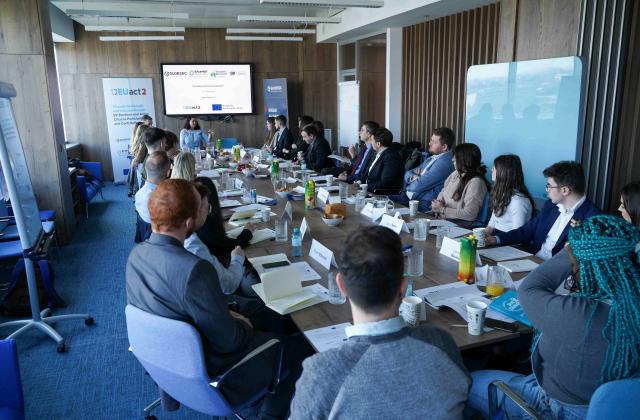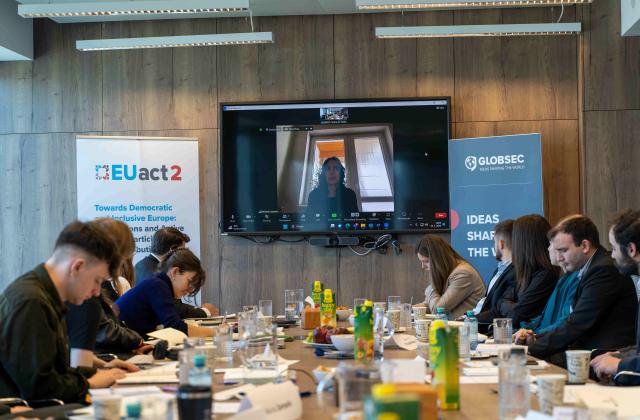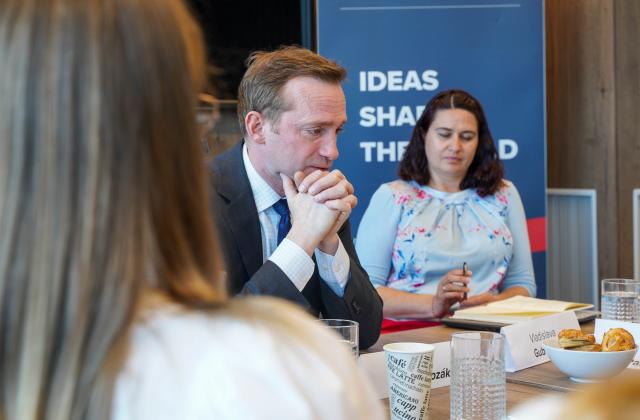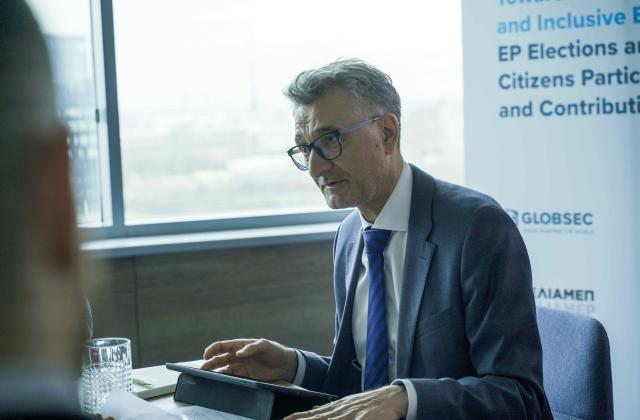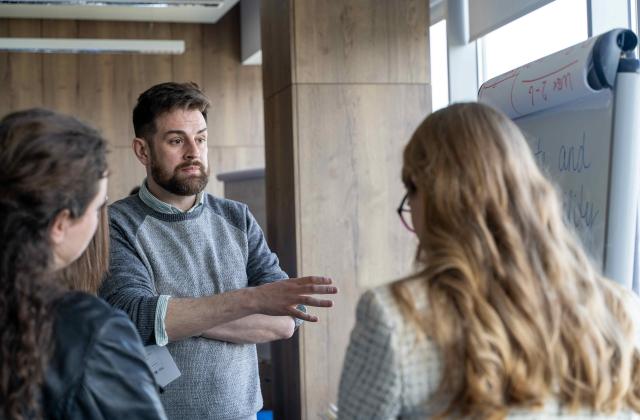Young Leaders Transnational Reflection Event: A Summary
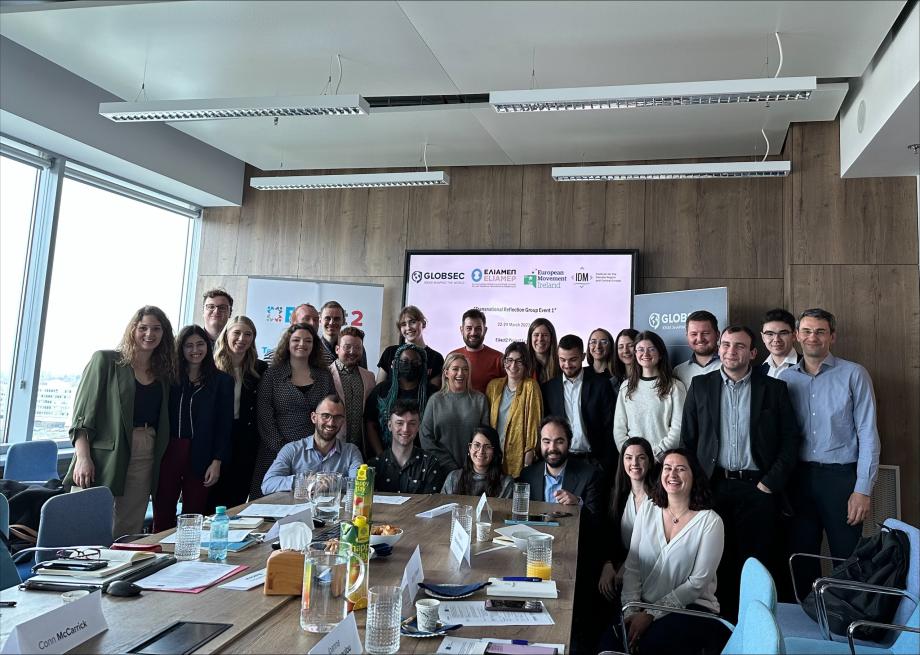
Within the activities of the EUact2 project, GLOBSEC, in partnership with ELIAMEP, European Movement Ireland, and the Institute for the Danube Region and Central Europe (IDM), held a two-day-long Transnational Reflection Group event in Bratislava, Slovakia, on 23-24 March 2023. This event gathered the opinions of 34 young leaders and professionals (18 women (53%), 15 men (44%), and one nonbinary (3%)) from 11 Member States, including Austria, Bulgaria, Czech Republic, Germany, Greece, Ireland, Italy, Poland, Portugal, Slovakia, and Spain. The event focused on reflecting on pressing matters for the EU today and in the next 20 years while drafting recommendations for the EU and national policymakers.
The working groups discussed various topics, ranging from climate, energy, and sustainability to education, youth, democracy, EU values, geopolitics, and security. The discussion was complemented by several keynote interventions. Speakers represented the EU Commission, the European Parliament and national governments, displaying an interesting compilation of insights about where the EU currently stands and where it might or should be heading in the next 20 years.
Vladimír Šucha, Head of the European Commission Representation in Slovakia, outlined climate change and digital transformation as the main challenges shaping the EU in the current decade and proposed several scenarios that the EU might take in the years to come, namely the strive for adaptability. Mr Šucha encouraged participants to think outside the box when seeking solutions to encourage further democratic participation and citizen engagement while also improving future EU policymaking.
Miriam Lexmann, Member of the European Parliament, emphasised the importance of aligning EU values to all internal and external policies, including foreign policy. She stressed that only by starting with the basics—our values—can the EU be a stronger global actor and more trusted among EU citizens.
Tomáš Kozák, Head of the Department of European Affairs at the Slovak Ministry of Foreign and European Affairs, discussed the need to reflect on 20 years of EU membership in Slovakia, reigniting the sense of belonging to the Union. No longer such a new member state, today, Slovakia brings experience and expertise in different policy areas to the Union
While the young leaders and professionals focused on debating the current state of the European Union’s affairs and advanced a future-oriented vision, they also connected the vision to the need for inclusive democratic participation, sustained civic space and citizen engagement. In particular, participants focused on three channels of engagement:
- Top-down channels allowing EU institutions to better reach and engage EU citizens, including direct involvement of EU officials, ‘ambassadors’ and influencers with the citizens, especially less represented groups;
- Bottom-up channels enabling citizens to impact EU decision-makers, including incorporating various in-situ and digital participatory formats;
- Better-tailored and more effective EU strategic communication to reach a more significant number of EU citizens, including the use of storytelling with approachable and engaging communication.

